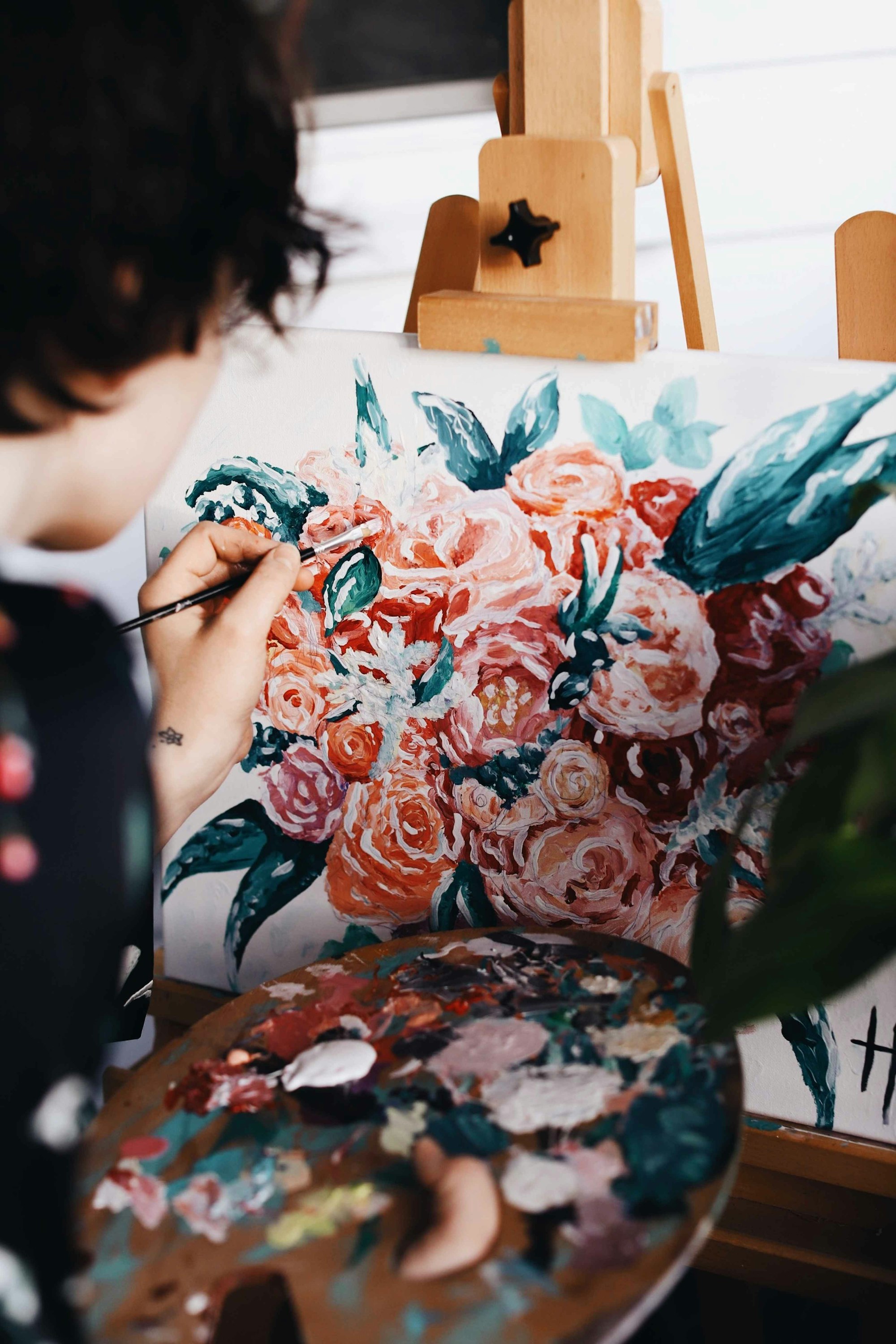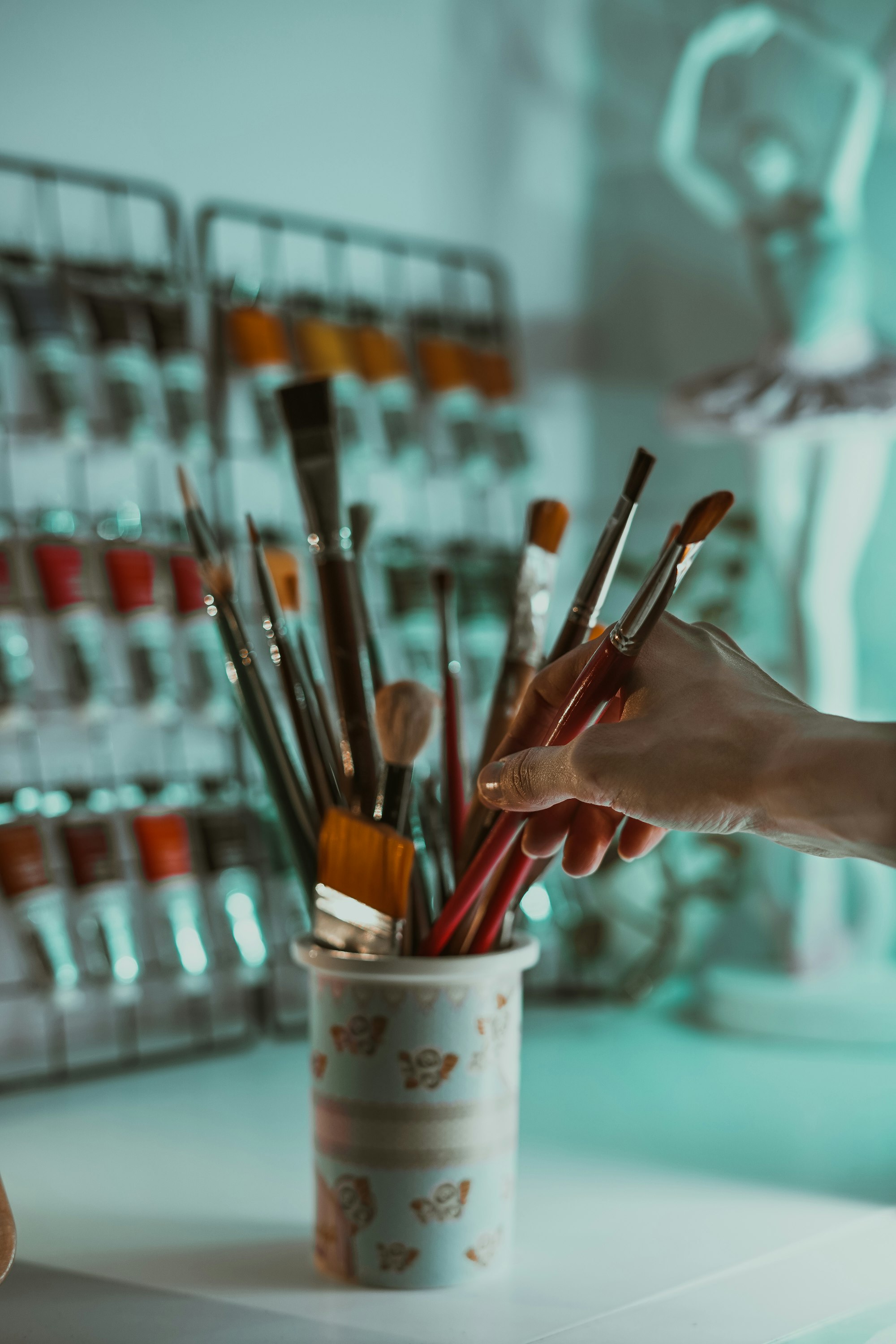The Mind-Body Connection: How Trying New Things Can Help Prevent Dementia
Do you know what the mind and body have in common? They are both incredible machines that need to be taken care of in order to function at their best.

Do you know what the mind and body have in common? They are both incredible machines that need to be taken care of in order to function at their best. And when it comes to preventing diseases like dementia, taking care of both your mind and body is crucial.
In recent years, there has been a growing body of research showing the link between the mind and body when it comes to preventing dementia. This connection can be seen through various activities, such as trying new things like oil painting techniques.
In this article, we will explore how the mind-body connection plays a role in preventing dementia and why trying new things can be beneficial for both your mind and body.
Understanding the Mind-Body Connection
Before we delve into the benefits of trying new things, it's important to understand the mind-body connection and how it works. The concept of the mind-body connection is based on the idea that our thoughts, feelings, and beliefs can influence our physical health.
In other words, what happens in our minds can have a direct impact on our bodies, and vice versa. For example, stress or anxiety can cause physical symptoms such as headaches or stomach pain.
Now, you might be wondering how this is related to dementia prevention. Well, the mind-body connection plays a crucial role in overall brain health, which includes preventing diseases like dementia.
The Benefits of Trying New Things
Many people tend to stick to routine and familiar activities, which can limit their experiences and knowledge. However, research has shown that trying new things can have numerous benefits for both the mind and body.
Let's take a closer look at some of those benefits:
Boosts Brain Function
When we try new things, our brains are challenged to learn and adapt to unfamiliar tasks. This can lead to the creation of new neural pathways, which improve brain function and cognitive abilities.
In fact, a study published in the Journal of Aging and Health found that learning a new skill can improve memory and delay cognitive decline in older adults.
Reduces Stress and Anxiety
As mentioned earlier, stress and anxiety can have negative effects on our physical health. Trying new things can help reduce stress and anxiety by giving our minds a break from the daily grind.
Moreover, activities like painting or learning a new language have been shown to have a calming effect on the brain, promoting relaxation and reducing stress levels.

Increases Social Interaction
Trying new things often involves stepping out of our comfort zones and engaging with others in new environments. This can be incredibly beneficial for our social health, as it allows us to connect with others and form new relationships.
Social interaction has been linked to improved mental health and reduced risk of dementia in older adults. So, by trying new things, we are not only stimulating our minds but also improving our social well-being.
Promotes Lifelong Learning
Learning is a lifelong process and trying new things can keep our minds active and curious. It allows us to continuously learn and acquire new skills, which can improve overall brain health.
Moreover, studies have shown that engaging in mentally stimulating activities can help build cognitive reserve, which is the brain's ability to adapt and function despite age-related changes or damage.
Dementia Prevention: The Role of Trying New Things
With the benefits mentioned above, it's clear that trying new things can contribute to overall brain health. However, when it comes to dementia prevention specifically, research has shown that engaging in mentally and socially stimulating activities can have a significant impact.
A study published in the Journal of Alzheimer's Disease found that participating in creative hobbies, such as painting or drawing, can reduce the risk of developing dementia by 73%. This is due to the fact that these activities challenge the brain and promote new neural connections.
Moreover, as mentioned earlier, social interaction has also been linked to a reduced risk of dementia. By trying new things and engaging with others, we are not only stimulating our minds but also improving our social well-being, which can have a protective effect against dementia.
Trying New Things: Oil Painting Techniques as Part of a Dementia Prevention Program
Now that we understand the benefits of trying new things for dementia prevention, let's take a closer look at one specific activity - oil painting techniques.
Oil painting is a creative and mentally stimulating hobby that involves learning various techniques to create beautiful pieces of art. As we have already established, engaging in creative hobbies can have a positive impact on brain health and reduce the risk of dementia.
Moreover, oil painting also requires hand-eye coordination and attention to detail, which can improve cognitive skills such as focus and concentration. These are important for maintaining brain function and preventing cognitive decline.
Furthermore, participating in an oil painting class or workshop also provides social interaction, allowing individuals to connect with others who share similar interests. This can have a positive impact on social well-being and reduce the risk of dementia.
Incorporating oil painting techniques into a dementia prevention program can be highly beneficial, as it not only promotes brain health but also provides a fun and enjoyable activity for individuals to engage in.

Oil Painting Techniques
As you get older, it’s important to do activities that help to maintain the mind and body connection.
Creative activities, such as learning oil painting techniques ,help to keep your brain focused. And to build up the parts of the brain that control muscle movement.
The human brain is a complex structure, and the same area of the brain is involved in many processes. Oil painting not only keeps the mind connected to the body... but it also helps to preserve the imagination... and the ability to discern ... the difference between the internal world and the external.
Learning Styles
Whenever you’re learning something new... you need to take into account your own personal learning style. This is especially important the older you are. As your brain needs new stimulation to continue to create neural pathways. You’re more likely to remember new skills if you approach the task with your best learning style:
Auditory – you’re an auditory learner if you remember things best when you’ve listened to them. For something like oil painting... you’ll learn best... when someone talks you through the different brush strokes and coloring techniques.
Visual – visual learners gain and keep knowledge most... when they are shown through demonstrations what it is that they are meant to be learning. You’ll learn oil painting techniques when someone sits next to you... demonstrating how to use the different paint brushes for you to copy.
Kinesthetic – kinesthetic learners work best when they to do the activity themselves. They learn through trial and error. So if this sounds like you... you’ll need to give yourself plenty of time and find a teacher who is willing to give you feedback on your efforts.
Types of Oil Painting Techniques
Oil painting is one of the most popular senior activities because... it’s easy to get started and gives very impressive results. There are two main styles to choose from when you’re starting to learn:
Indirect painting – this involves painting in layers. Allowing each coat to dry before painting the next. This style of painting is great for staving off dementia.. as it requires you to plan out your picture and your brushstrokes before you start. You’ll need a certain level of knowledge about different paint types... such as opaque and glazes, to master this technique.
Direct painting – also known as wet-on-wet, direct oil painting is done all in one go. This also helps to maintain the mind body connection ... as you’ll need to use your fine motor skills to avoid mixing colors and to work out the liquid content of your paint. You’ll need to apply the thinner paints first and then those with a higher oil content. This helps to keep the colors bright.
Dementia is a constant fear as people grow older. Unlike hereditary diseases, you can do something to lessen your chances. Learning oil painting techniques and other such creative activities will keep your brain active. Doing it as part of a class will also be a good way to keep you active . And help you to make and maintain friendships with other like-minded seniors.
Many of you may have heard of Grandma Moses. She began to paint as an artist in her seventies. It is said that her first painting was done with house paint. Grandma Moses was self-taught and some may want to try that.

For those interested in painting with oils, that would like some instruction... there are options available. Look into your local community college or the community center in your town.
The mind-body connection is a powerful concept that highlights the importance of our thoughts and emotions on our physical health. By trying new things, we can promote this connection and reap numerous benefits for both our minds and bodies.
In terms of dementia prevention, trying new things has been shown to have a significant impact due to its effects on brain health. Engaging in mentally stimulating activities like oil painting techniques can promote brain function and reduce the risk of developing dementia.
So, if you're looking to improve your overall well-being and possibly prevent diseases like dementia, don't be afraid to step out of your comfort zone and try something new. Your mind and body will thank you for it! So go ahead, pick up that paintbrush or sign up for that dance class - the possibilities are endless. Keep learning, keep exploring, and enjoy the many benefits of trying new things. So don't be afraid to step out of your comfort zone and try something new today! Your mind and body will thank you for it.
More one learn oil painting techniques to retrain your brain to improve memory





